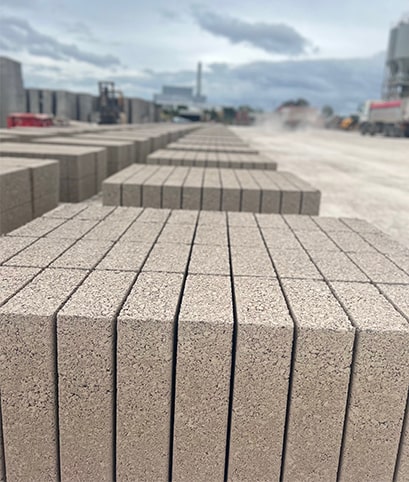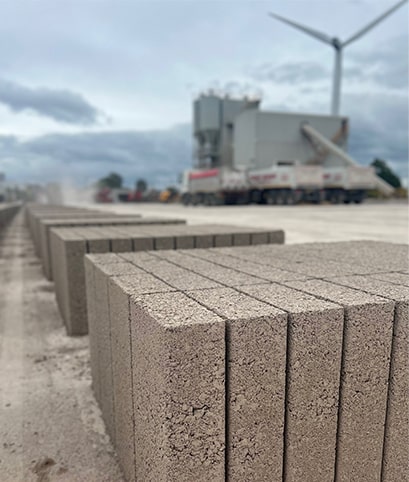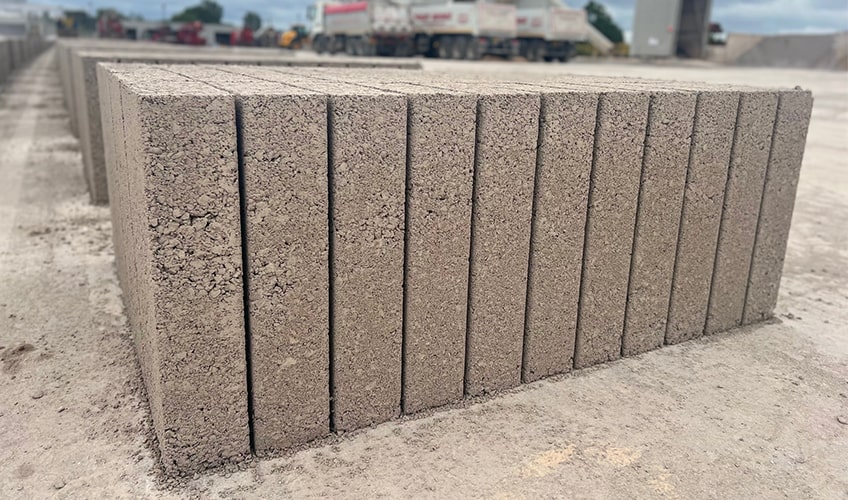Every construction project begins with one key question: which material delivers the best results? Across the South West and South Wales, that choice often comes down to concrete vs steel. Both have played a key role in the UK’s built environment for decades. Each offers unique strengths that influence cost, performance, and sustainability.
Concrete provides high compressive strength and strong thermal efficiency, creating stable, energy-efficient buildings. Steel provides strong tensile strength and precise design. This makes it perfect for long-span and high-rise structures. The Institution of Civil Engineers (ICE) states that much of today’s infrastructure relies on reinforced concrete. This combination of both materials balances flexibility and durability. However, concrete’s affordability, local sourcing, and long lifespan make it the most practical option for most UK builds.
We offer ready-mix concrete that meets British Standards (BS 8500-2) and deliver it quickly throughout the region.
How Do Concrete & Steel Compare in Construction?
ICE identifies strength and behaviour under load as the main difference between concrete and steel. Concrete excels when compressed, so it’s perfect for footings, walls, and load-bearing slabs. Steel excels in tension, resisting bending or stretching. This is an excellent advantage for high-rise buildings and long-span structures such as bridges.
When used together in reinforced concrete, the materials complement one another. The steel absorbs tensile forces, while the concrete distributes compressive loads. This creates a strong and balanced structure that works well for many commercial and home projects in the UK.
Concrete provides substantial thermal performance benefits. It helps keep indoor temperatures stable and lowers heating demand. The Building Research Establishment (BRE) explains that concrete’s thermal mass can help lessen peak energy loads. It does this by absorbing heat and slowly releasing it. This process boosts comfort and efficiency in buildings. Steel can achieve similar results but often requires added insulation to match concrete’s performance.
To enhance supply and speed up delivery, we operate various regional plants. These plants are set up for fast batching and local delivery, and you can learn more via our concrete plants page.
What Costs More to Build With Concrete or Steel?
For most UK projects, concrete continues to offer greater cost stability than steel. Data from the House of Commons shows that steel prices are more volatile. Its price is influenced by energy costs and global supply chains, hence the need for the government’s steel strategy. Concrete, on the other hand, is primarily produced and sourced locally. This helps maintain predictable pricing and availability.
Steel structures help shorten construction time through prefabrication. However, the increased costs of fabrication and transport can eat into those savings. Concrete is affordable, available, and easy to place. This makes it the top choice for home and business projects in the South West.
Key advantages of concrete for cost control:
- Concrete is sourced locally, reducing transport costs and environmental impact.
- Each mix is precision-batched to minimise waste and improve efficiency.
- LGW's regional plants support reliable delivery schedules.
As part of The LGW Group, we offer consistent pricing and dependable supply across the South West. Our team also provides concrete pumping services. These help streamline on-site delivery and reduce labour costs by enabling faster, cleaner pours.
Why Concrete Leads in Sustainability & Longevity
The key difference in sustainability between concrete and steel lies in how they perform throughout their lifecycles. Steel is fully recyclable, but its production is energy-intensive, requiring temperatures of over 1,500°C. Concrete can use recycled aggregates and low-carbon cement substitutes. This helps reduce embodied carbon while still maintaining strong performance.
The UK Green Building Council (UKGBC) says the construction sector needs to cut whole-life emissions. This can be achieved by improving material efficiency and reducing transport miles. We help achieve this goal by using local batching and delivery. This reduces haulage distances and lowers fuel use across the South West.
Sustainable advantages of concrete include:
- Using locally sourced materials reduces transport emissions.
- High thermal efficiency reduces operational energy use.
- Long service life with minimal maintenance.
Concrete’s durability also supports sustainability by extending the lifespan of structures. The Building Research Establishment (BRE) says reinforced concrete can last over 100 years. That is, if it is mixed and properly looked after. In coastal or humid areas, steel parts usually need protective coatings or galvanising to avoid corrosion. Maintenance concrete often skips this step.
This long-term resilience plays a key role in the UK’s Net Zero Strategy. It focuses on using low-maintenance, low-emission building materials for sustainable construction.
Top 3 Reasons Concrete Is Still the Core of Modern Construction
Steel is key to structural engineering, yet concrete remains the foundation of most construction in the UK. Its performance, versatility, and local availability make it a reliable choice for all types of projects. This includes everything from small home extensions to large commercial developments.
1. Versatility for Every Project
Concrete can be poured, shaped, and finished to meet almost any specification. It supports decorative architectural work, large-scale structural elements, and even polished interiors. We supply liquid screed for smooth and efficient flooring. It meets current performance standards.
2. Long-Term Durability
Concrete resists fire, weather, and corrosion, maintaining its structural integrity for decades. High-density concrete is a preferred material for safety and longevity in UK building standards. For domestic use, we provide tailored mixes for driveways and shed bases to ensure reliable strength and finish.
3. Cost Stability & Efficiency
Concrete remains a stable option for costs. This is thanks to its local sourcing and efficient production methods. We provide accurate batching and flexible delivery from various regional plants. This helps contractors reduce waste and stay on track. Materials like bulk bag aggregates and gravels enhance on-site efficiency and aid in resource planning.
Concrete is versatile, resilient, and affordable. These qualities make it a top choice for builders, developers, and homeowners in the South West. This approach supports lasting value and sustainable growth in the region.
Your Project Deserves Concrete Confidence
In the concrete vs steel debate, both materials remain vital to construction. However, concrete offers the best balance of strength, cost stability, and sustainability. Its flexibility and local sourcing make it a reliable choice for both small foundations and large commercial builds.
Choosing Wright Readymix means working with a trusted regional supplier backed by The LGW Group. Every batch meets British Standards (BS 8500-2) and is delivered with precision to projects across the South West. Explore our testimonials and news pages for feedback and expert guides like the complete guide to concrete footings.
Call 0117 958 2090, or contact our concrete specialists today to ensure your mix meets specification, schedule, and budget.



